Written by Sasha Wirth; Photographed by Paige Green
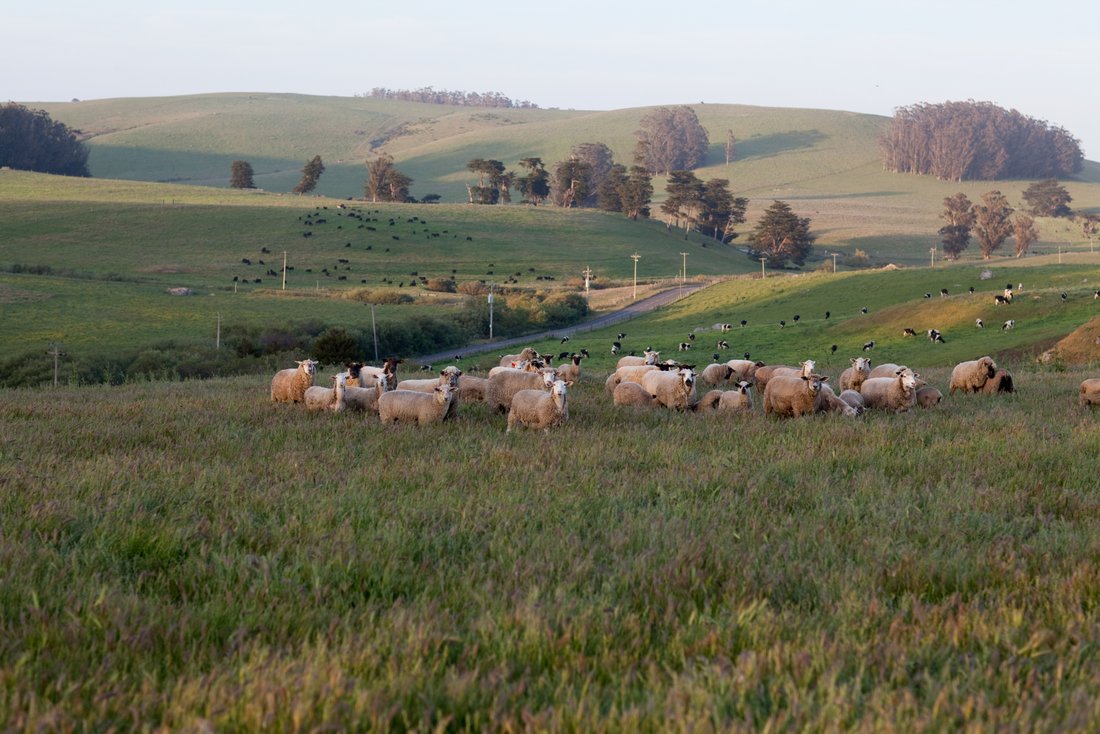
It began with only two sheep. Soon the two turned into eight. Then eighteen. Forty. Before long, Stemple Creek Ranch found itself with hundreds of sheep roaming the hillsides.
“The first two sheep started off as my grandmother’s pets,” laughs Loren Poncia, the fourth-generation caretaker of land that has been stewarded by his family since 1902. “Because of her we now have more than 600 sheep and expect it to grow to 1,000 in the next two years.”
His grandmother, Jennie “Noni” Poncia, lived her entire life on the ranch until she died at the age of 93. She spent her days in the barn or out in the fields, caring for all the animals with a gentle kindness and patience. When there was time to spare, she’d be found kneeling in the garden, pulling weeds and planting flowers for her family to enjoy.
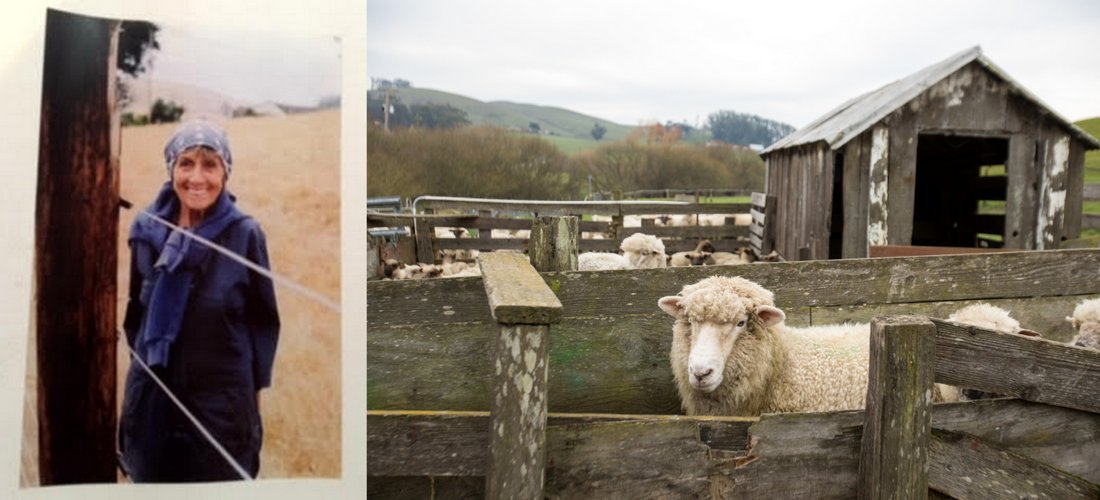
“She was the Mother Theresa of animals,” smiles Poncia, remembering her unwavering dedication and devotion. “Noni raised all the calves, but she liked the sheep best. She’d exclaim ‘Oh, good!’ when bummer lambs were brought in from the field, like she was getting the best gift. They’re a lot of work, but she bottle-fed them without a second thought. Sometimes she even named them. Torpedo was one of her favorites.”
He shows a photo of Noni in later life, standing in a golden field. Her hair is tucked beneath a scarf and a wide smile spreads across her sun-kissed face. She glows, as only a woman who is assured and satisfied with her life can look.
“My daughters have that same spark. That soulful quality,” he says. “Like her, they adore the animals.”
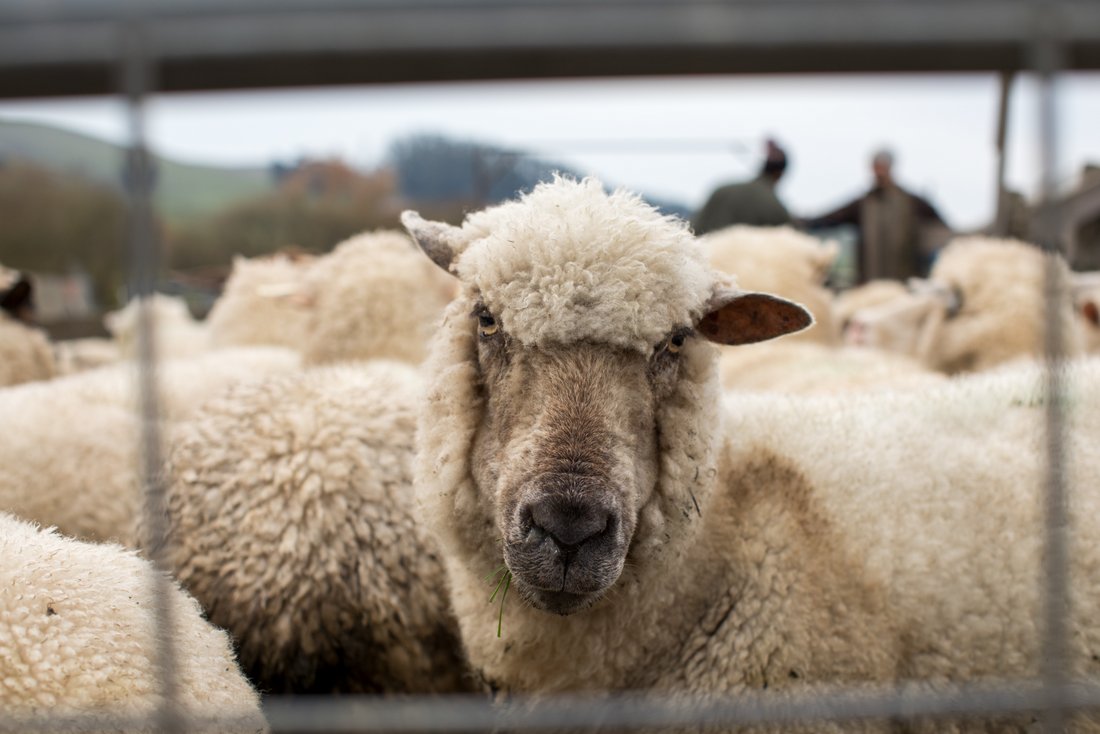
When asked if they’ll take up the reins one day, he shrugs. For him, growing up on the ranch was a unique childhood – one he hopes to share with his girls. “Here you get to watch the cycle of life, and the seasons dance with Mother Nature. You see everything survive and prosper. It’s beautiful.” It’s what brought him back to the family’s historic homestead, and what he believes will inspire the fifth generation as well.
While the future looks promising, Stemple Creek has already had to survive quite a few transitions. From almost losing the ranch due to a crippling inheritance tax, to shifting from dairy operations to grass-fed beef and lamb production, the ranch has had to evolve. And all this time, Noni’s flock of sheep remained quietly and unassumingly in the background.
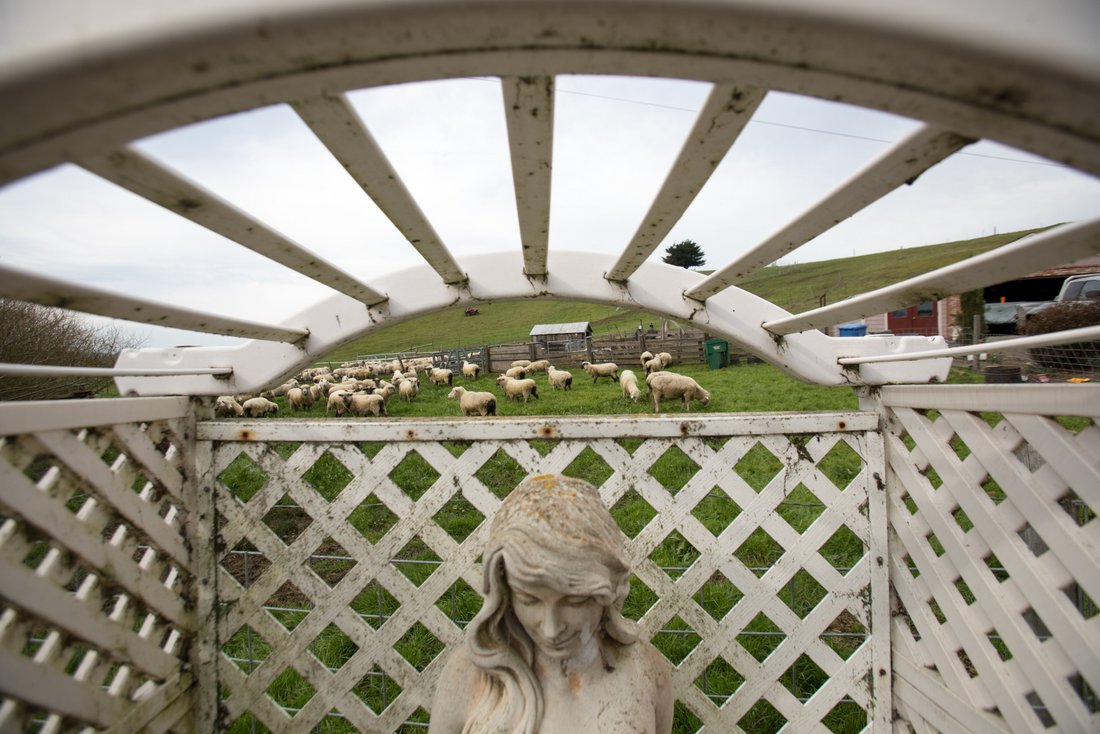
On any given day, they still tromp through the rolling green hillsides, where the ranch’s namesake creek meanders through the land. Salt from the nearby Pacific Ocean seasons the air, mixing with the minty scent of eucalyptus trees lining the property. Look closely among the shaggy coats and you’ll find the watchful, wagging tails of Salty, Pepper and Zeus — the ranch guard dogs.
“It isn’t easy raising sheep. It’s difficult work. They’re a target for predators,” confides Poncia. “In 30 nights we had 43 lambs stolen. But since we’ve had the three dogs, we haven’t lost a single one.”
With the lamb theft taken care of, Poncia has been able to contemplate a softer side to the hard business of ranching, and a new purpose for his sheep: wool.
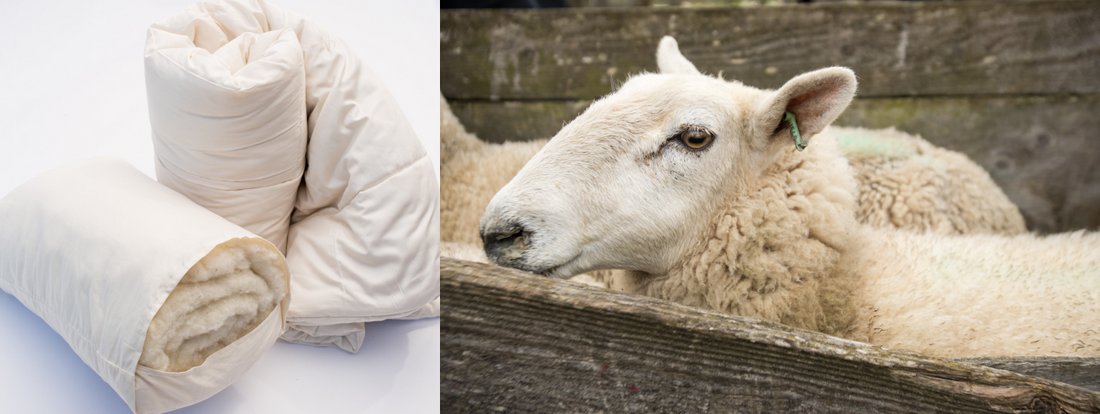
Up until three years ago, wool was still considered a byproduct on the ranch – something that barely covered the cost of shearing. But with the growing demand and interest in locally-produced fiber, Poncia saw an opportunity. Though it would be a micro-industry, wool would add value to Stemple Creek’s overall farming business. It was an investment he could feel good about.
And good things, like Noni’s first sheep, tend to multiply. Along with a handful of other Northern California ranches, Poncia became involved in the 10-year Marin Carbon Project, which helps farms to responsibly sequester carbon on their land through various environmental practices.
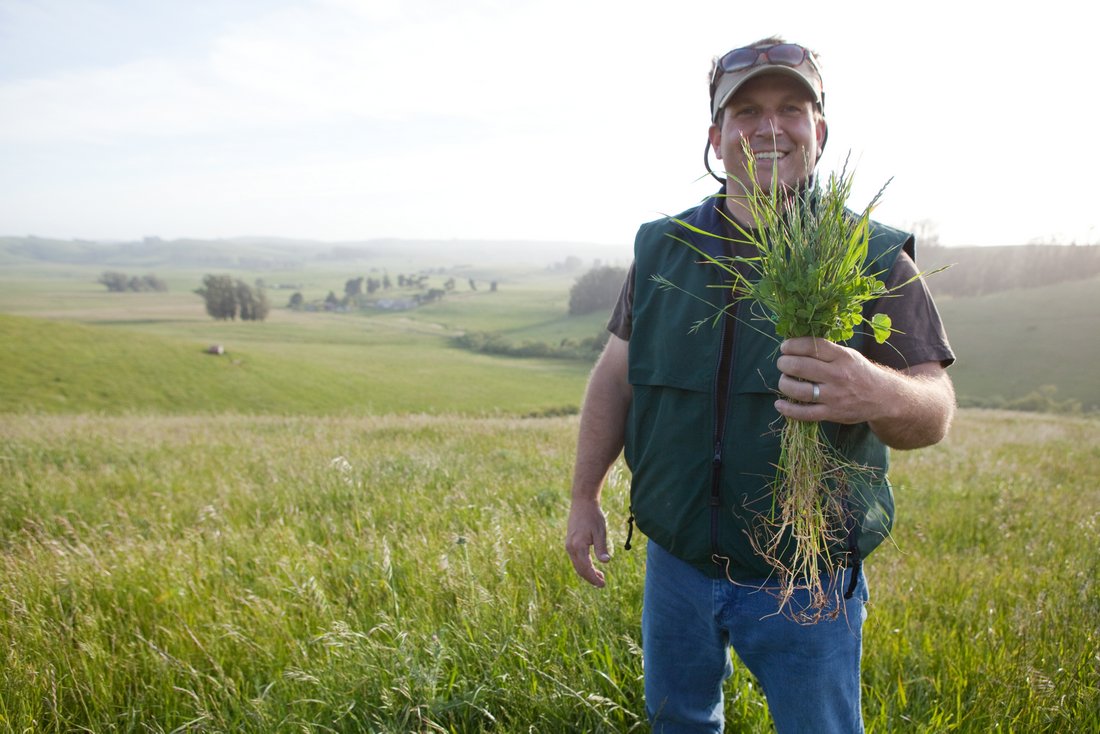
By engaging with Marin Carbon Project, Stemple Creek has successfully implemented pasture seeding, windbreaks, prescribed grazing, compost applications, silvopasture techniques, and riparian restoration on its Tomales lands. According to Dr. Jeff Creque, a co-founder of MCP and facilitator of Stemple Creek’s Carbon Farm Plan, “Implementation of the Stemple Creek Carbon Farm Plan can be expected to result in additional sequestration in Stemple Creek Ranch soils and vegetation of 849 metric tons of CO2e annually. For comparison, a typical passenger vehicle emits about 4.7 metric tons of CO2e per year (EPA 2016), so this amount of CO2 sequestered would offset the emissions of about 180 passenger vehicles annually.” And the research shows the improvement isn’t just for the given year. The effects of Carbon Farming help mitigate climate change exponentially in the future, along with Loren’s plans to add trees along the creek and begin using vermicompost in the coming years.
This sustainable way of farming contributes to biodiversity and helps reverse climate change. It has also allowed Stemple Creek to invest in both its soil and its sheep simultaneously, becoming one of the first producers of Climate Beneficial Wool. By living and grazing on land that is managed with Carbon Farming techniques, Stemple Creek’s wool draws down more carbon out of the atmosphere than is produced in its raising and processing. It’s a certification that knitters and fiber artists can feel good about, too.
“The Carbon Project is a cool and important movement to be a part of. We’re preserving the environment while producing heirloom quality wool,” says Poncia.
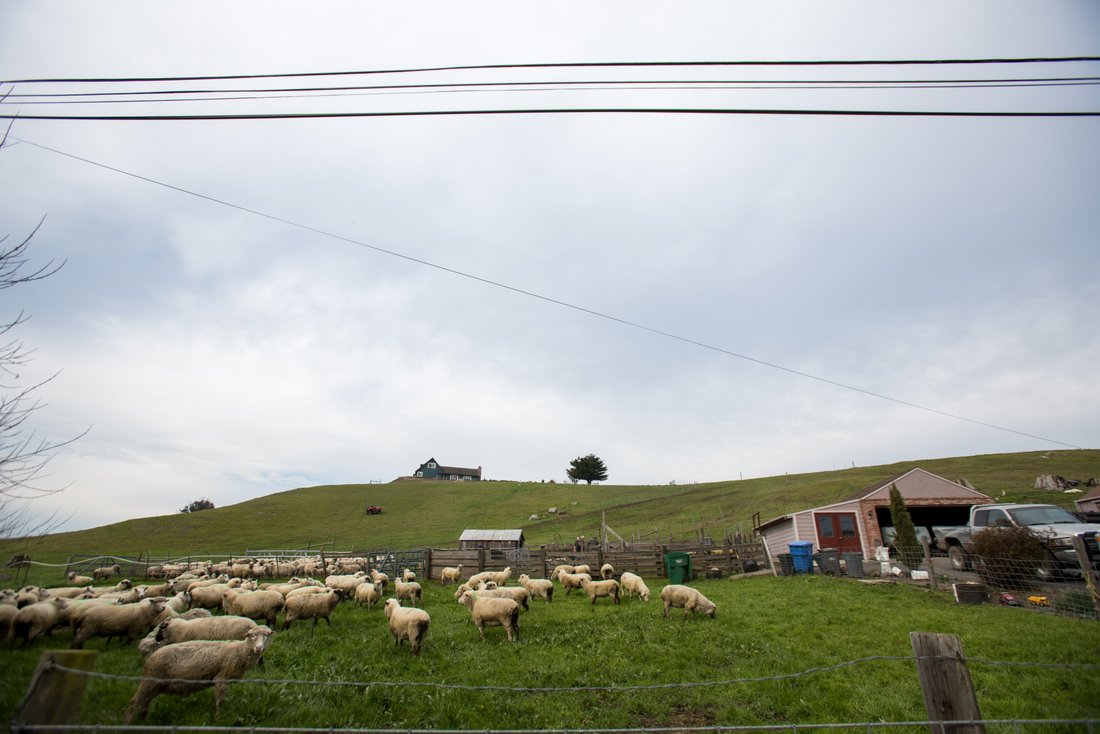
To continue this wooly evolution of Stemple Creek, he’s excited to add new breeds to the existing flock – like Perendale sheep – to diversify his fiber offering. The current wool is primarily used as batting, and Poncia had the first batch made into a cozy comforter for him and his wife. But with more sheep, the possibilities are opening up.
“We’ll be upgrading to a king-size comforter next,” he grins.
And there – in his smile and among the grazing flock outside – one gets a glimpse of the true legacy that Jennie “Noni” Poncia has left behind.
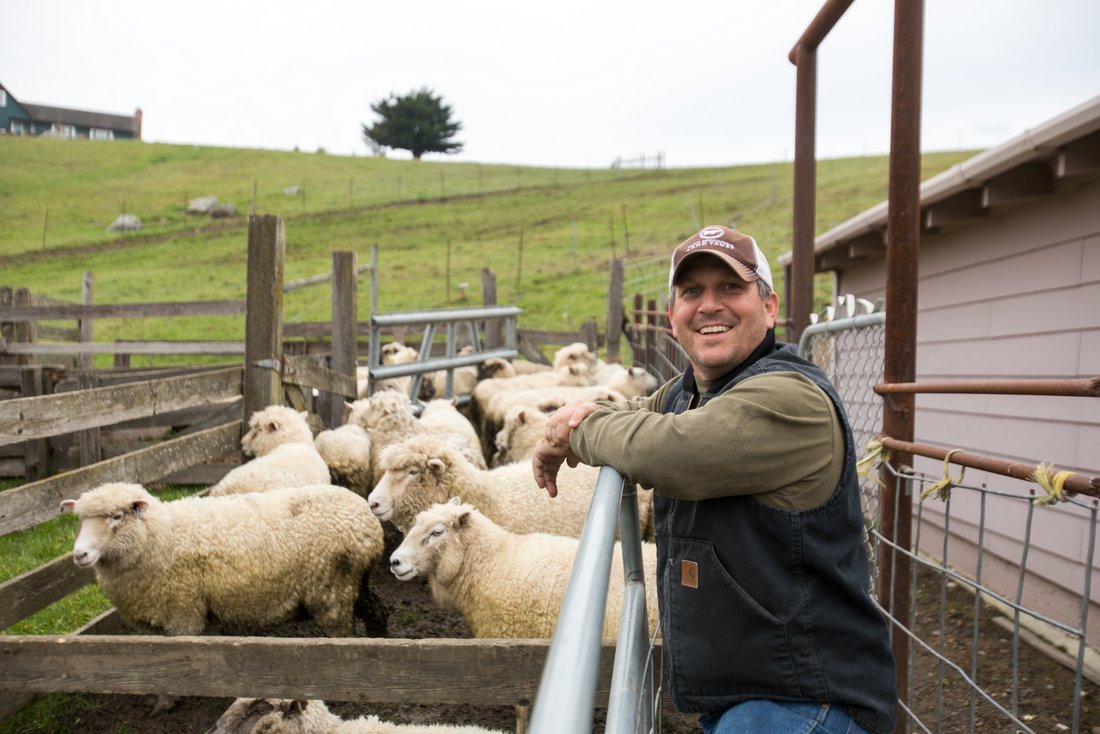
To learn more about Stemple Creek Ranch, visit their website at www.stemplecreek.com and on Instagram @stemplecreek To learn more about their Climate Beneficial wool batting, and products made from it, visit www.hand-made-studio.org
